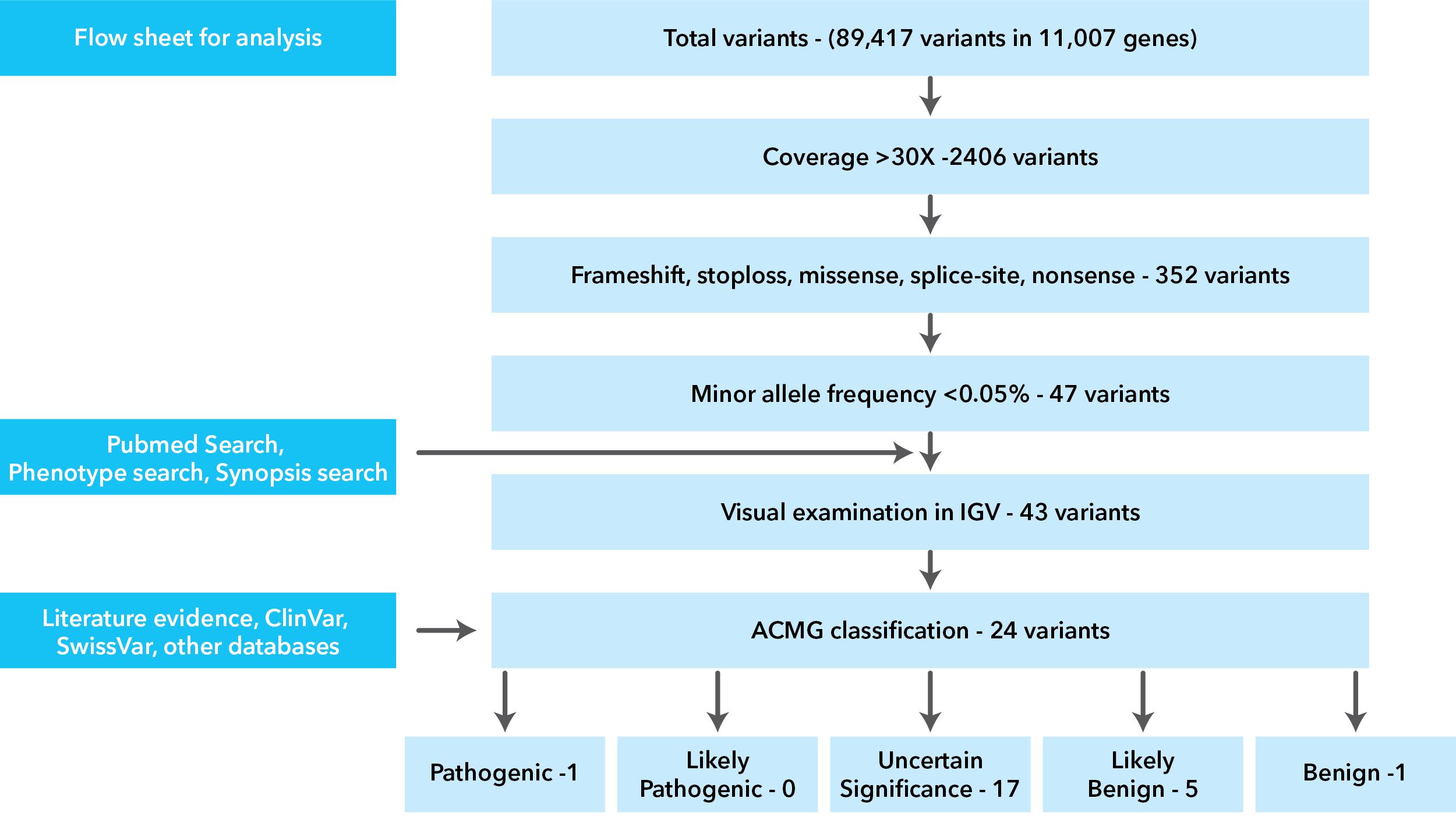By Sandhya Nair, Lead Genome Analyst, Fah Sathirapongsasuti, Associate Director, Bioinformatics & Genomic Medicine, Sakthivel Murugan SM, Associate Director, Operations (MedGenome Labs)
Genetic testing can prove to be a crucial element in clinical diagnosis as it offers critical insights that can help a clinician in managing, treating and even sometimes prevent an inherited condition. A specific diagnosis and treatment regimen can be determined once the clinician runs a specific array of genetic tests after knowing the detailed family history of the patient.
Reporting one or two variants specific to the phenotype of the patient from few lakh variants after performing an NGS assay involves steps that can strategically eliminate variants of least importance. The variants are excluded based on high minor allele frequency (common in the control population), variants with benign insilico predictions or that are not significant to the phenotype mentioned. However, differential diagnosis, clinical indications manifested and the other details plays an important role in identification of the causative agent.

We analysed a case of a 21-year-old male, born of a consanguineous marriage, who had difficulty in walking since his childhood. Other physical challenges involved difficulty in getting up from the floor, weakness in left lower limb for the past 5 years, followed by the weakness in the right lower limb from past 4 years, slipping of footwear without awareness, outward deviation of feet from past 4 years, tremors in both hands from past 2-4 months, malformed ears, bifacial weakness, pes cavus, hammer toes and reduced deep tendon reflexes and elevated levels of Creatine phosphokinase (CPK). He also had a family history of elder sister who was similarly affected. The clinician suspected this as a case of hereditary spastic paraparesis. We analysed the NGS data for all the genes related to hereditary spastic paraparesis but did not find anything significant, however, we noted a rare homozygous missense variant in ARG1 gene which causes Argininemia.
Arginase deficiency is an autosomal recessive inborn error of metabolism caused by a defect in the final step in the urea cycle, the hydrolysis of arginine to urea and ornithine. Primarily, urea cycle disorders are characterized by the triad of hyperammonemia, encephalopathy, and respiratory alkalosis. Sometimes, arginase deficiency may be misdiagnosed as static spastic diplegia (cerebral palsy). It should be noted that arginase deficiency is one of the few treatable causes of spastic diplegia. (https://www.omim.org/entry/207800)
Get in touch with MedGenome, your reliable research and development partner for advanced pharmaceutical solutions.
#Argininemia, #NGS assay , #ARG1 gene
 US
US IN
IN

